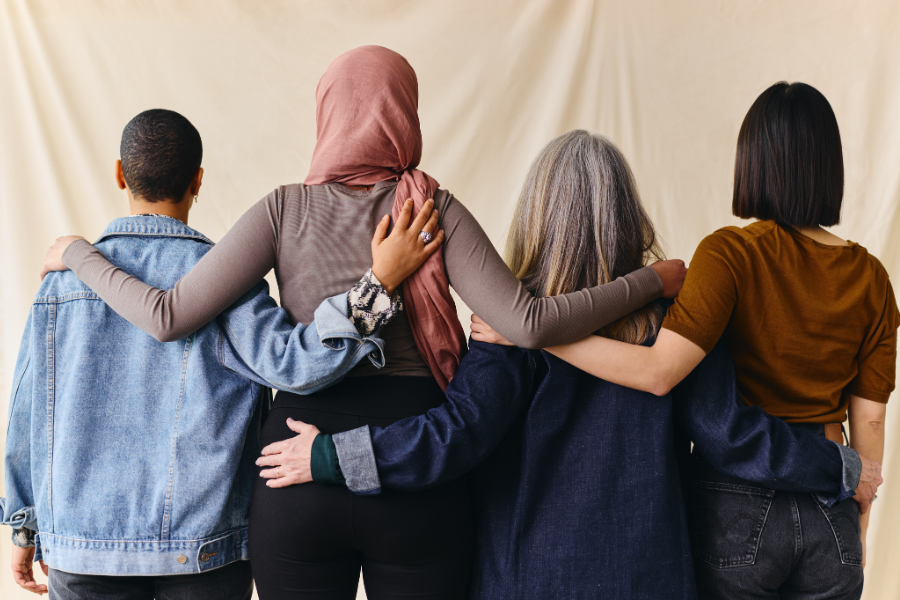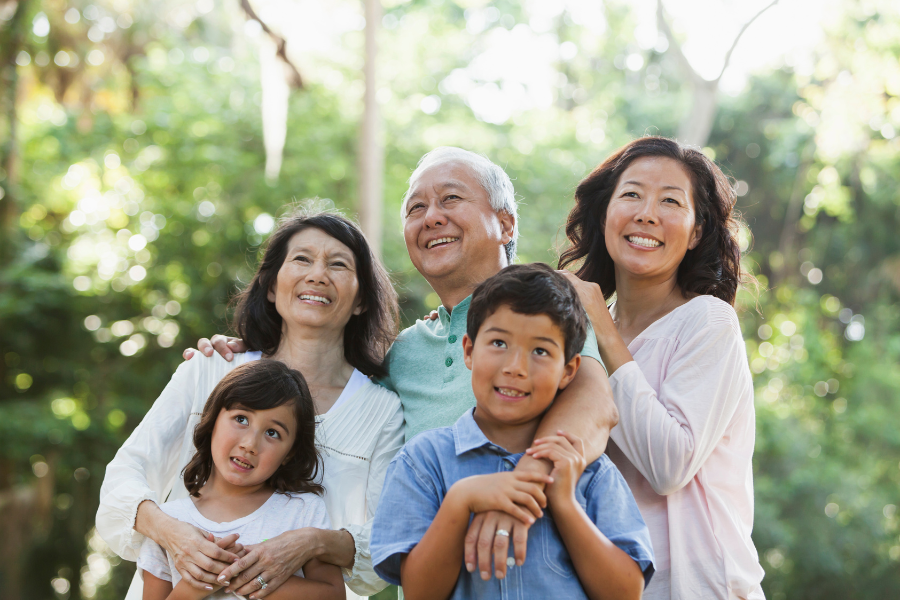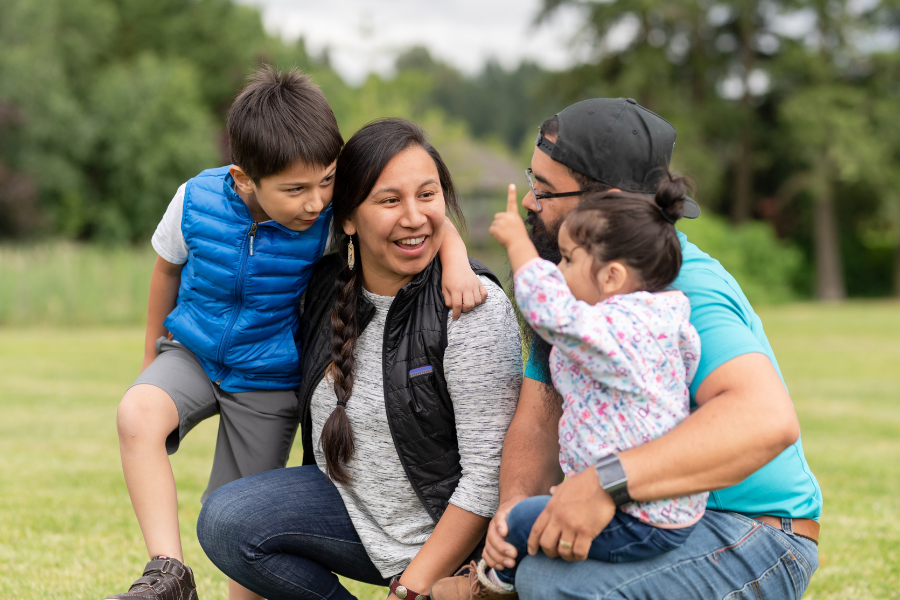By: Dee Hagan, M.A. and Dana Lougheed, M.A.
BIPOC Persons And Mental Health
 Persons who are under the umbrella term “BIPOC”, or Black Indigenous Person of Color, are spotlighted during the month of July for BIPOC Mental Health Awareness Month in the United States. This month has been championed by mental health advocate Bebe Moore Campbell, who brought attention to and support of persons of color and their mental health needs. July allows not only for BIPOC persons to learn more about how their mental health is a significant part of their overall health, but also allows for them to be seen as holistic beings who require attention to their humanity.
Persons who are under the umbrella term “BIPOC”, or Black Indigenous Person of Color, are spotlighted during the month of July for BIPOC Mental Health Awareness Month in the United States. This month has been championed by mental health advocate Bebe Moore Campbell, who brought attention to and support of persons of color and their mental health needs. July allows not only for BIPOC persons to learn more about how their mental health is a significant part of their overall health, but also allows for them to be seen as holistic beings who require attention to their humanity.
Throughout history, people of color in the U.S. have been discriminated against based on their race, citizenship status, language proficiency, the intersectionality of these factors and more. Whether a person is an immigrant, a refugee, or a 2nd or 3rd generation individual, they may face experiences that are outside the norms of those in other communities. These factors, on top of navigating academics, the workplace, the economy, etc. can cause an already hectic mind to suffer from stress, anxiety or another diagnosis, especially if care is not sought. A few common mental health struggles within BIPOC communities are addiction to alcohol and/ or substances, Post Traumatic Stress Disorder (PTSD), Generalized Anxiety Disorder, Major Depressive Disorder and suicide. The lack of evidence-based treatments, inadequate government funding, language barriers, and stigma all play into the lack of mental health treatment and access for the BIPOC community.
Below are several groups of individuals that may identify as members of the BIPOC community living in the United States. Each is unique, and is filled with multifaceted persons who should not be seen or treated as a monolith. After each description, is a brief list of resources for each respective community. Group therapy can be a helpful way to bring diverse people together.
Latinx

Latinx is a term that is used to encompass a wide range of persons who historically hail from Latin American countries regardless of race. Latinx persons have a varied history and lineage with the U.S., and have faced trials based on civil and immigration rights. According to the Center for American Progress, the Latinx community faces “disproportionate health and economic impacts from COVID-19”1 compared to their White (non-Hispanic) counterparts.
Asian And Pacific Islander

AAPI (Asian American and Pacific Islander) is another label that describes persons who have ancestry from designated Asian countries and islands of the Pacific Ocean. In the United States, there have been many instances where racism has been an issue, from the Chinese Exclusion Act of 1882 to the more recent years of the anti-Asian hate and bullying that has stemmed from the COVID-19 pandemic. While the AAPI designation signifies commonalities, research has shown that Asian Americans and Pacific Islanders have differing needs and concerns, but there can be an overlap in the need for targeted support of and for mental health resources.
- APISAA Therapist Directory
- Asian American Health Initiative
- National Queer Asian Pacific Islander Alliance (NQAPIA)
- The National Asian American Pacific Islander Mental Health Association
Indigenous/Native Persons

There are 574 federally recognized tribal nations comprising 5.2 % of Americans identifying as Native/Indigenous persons. Discrimination of this population go as far back as the first European settlers, events such as the California Genocide and the Trail of Tears to the present day with a high discrepancy in rates of poverty and health concerns due to a lack of access. Recognizing mental health challenges and addressing them through targeted prevention and support strategies is crucial for improving the well-being of Indigenous communities. Despite the urgent need for mental health support, Native persons often face significant barriers that contribute to their resistance to seeking treatment.
- National Indian Health Board
- Strong Hearts Native Helpline
- One Sky Center
- Minnesota Indian Women’s Resource Center
- Waub Ajijaak Press and Foundation
Black/ African American

Historically in the United States, there has been a divide in the healthcare system due to structural, implicit and racial biases. There are a few reasons why the Black American population is hesitant or resistant to seek treatment. The most notable is the lack of diversity and cultural competency among mental health professionals. The general lack of trust in health care professionals can find its origin in studies such as the Tuskegee Syphilis Study and James Marion Sims’ gynecologic study on enslaved women. Understanding the history of Black Americans shows why this community is not accepting and welcoming the cultural shift towards embracing mental health care.
- Boris Lawrence Henson Foundation
- White Fragility: Why is it so hard for White People to Talk about Racism By Robin DiAngelo
- How to be an Antiracist by Dr. Ibram X. Kendi
- Therapy for Black Men
- Therapy for Black Girls
National Mental Health Organization – BIPOC Information
References
Black/African American (n.d.) NAMI. https://www.nami.org/Your-Journey/Identity-and-Cultural-Dimensions/Black-African-American/.
Indigenous. (n.d.). NAMI. https://www.nami.org/Your-Journey/Identity-and-Cultural-Dimensions/Indigenous/.
Mental Health in Native American Communities | McLean Hospital. (n.d.). https://www.mcleanhospital.org/essential/native-american-mh#:~:text=Historical%20Trauma%20and%20Mental%20Health.
Zamarripa, R. (2021, November 7). Latinos face disproportionate health and economic impacts from covid-19. Center for American Progress.
https://www.americanprogress.org/article/latinos-face-disproportionate-health-economic-impacts-covid-19/.




